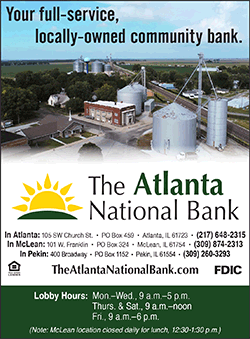|
 One
of these things is not like the other. If you have ever wondered
where the tradition of ornaments and tree toppers comes from, you’re
in good company. One
of these things is not like the other. If you have ever wondered
where the tradition of ornaments and tree toppers comes from, you’re
in good company.
The traditions of giving deeper meaning and symbolism to evergreens
goes back farther than ornaments, tree toppers, or even Jesus.
According to History.com, early humans assigned deeper meaning to
trees that remained green year-round. Seeing as how many early
people believed that the sun was a god, when the winter solstice
came around, the shortest day in the Northern Hemisphere, they
believed this was a sign that their god was becoming ill. They would
celebrate the solstice, as they knew their god would begin to
recover and become strong again. Hanging evergreen boughs reminded
them of months when the sun would stay out longer, like summer
months.

The Ancient Egyptians, who worshiped a sun god named
Rah, had a similar belief, seeing green palms and papyrus reeds as a
symbol of life over death. The early Romans celebrated the solstice
for their god Saturn, decorating their homes with evergreen boughs
as well.
It is Germany, however, that is commonly credited with establishing
the more modern Christmas tree. History.com states that some sources
cite Christians bringing evergreen trees in their homes as early as
the 16th century. The National Christmas Tree Association (NCTA)
says this source is a record from Alsace, France, which was actually
German territory at the time. According to the NCTA, trees were
being sold in a marketplace to be taken home and set up without
decorations.
While it is not known exactly when, Christmas trees were first
introduced to the United States sometime in the 1800s by German
immigrants. By 1851, “Christmas Trees began to be sold commercially
in the United States,” according to the NCTA. It was later in this
century that both ornaments (also from Germany) and artificial trees
were introduced here as well. Sears was the first company to begin
selling these artificial Christmas trees.

What about ornaments and other kinds of Christmas
tree decorations? When and how did these come about? According to
Britannica, this is another tradition that can be attributed to
Germany. Apples were hung on the trees to symbolize Adam and Eve in
the garden, wafers were sometimes added to symbolize the
“eucharistic host,” and candles were added to symbolize Jesus as the
light of the world.
These decorations began to be replaced with a more recognizable
glass ornament in the 1800s. Again, it was German immigrants that
brought these ornaments to the United States. Many rejected these
ornaments at first, favoring decorations that held religious
significance rather than ones that simply looked pretty. It should
be noted that, with the exception of certain immigrant groups and
the wealthy, most Americans still did not decorate their Christmas
trees even after German ornaments were introduced.
In 1882, after the invention of electricity, Edward Hibbert Johnson
had the idea to replace candles on his Christmas tree with electric
lights. This was an immediate hit, with news of Johnson’s Christmas
tree spreading across the country. By the mid 1890’s, President
Grover Cleveland even had the first electric Christmas tree
installed in the White House. The popularity of these Christmas tree
lights caused a flurry of new Christmas decorations to be created
and sold, including the humble German bulb-ornament.
Over time, different types of ornaments began to come about. In the
1940’s, when there was a shortage of glass, ornaments were made of
cardboard. In the 1970s, Hallmark started selling their ever-popular
ornaments. In the 1990s, these Hallmark ornaments started becoming
more easily recognizable characters, such as Mickey Mouse and Batman
& Robin.
[to top of second column] |

What about tree toppers, though? Where did they come
into all of this? Would you be surprised to hear that Germany is
largely responsible for the modern Christmas tree toppers too? The
first recorded use of these toppers was actually a baby Jesus tree
topper that was used in the 16th century. By the 17th century, angel
tree toppers were becoming popular in England. As for the notorious
star atop the Christmas tree, it is not certain exactly where this
tradition started. While some credit Martin Luther with the first
star atop the tree, other sources claim he had nothing to do with
the tradition. What is not disputed, however, is that the star
symbolizes the Star of Bethlehem. According to the Bible, this is
the star that led the three wise men to Jesus when he was born.
It cannot be argued that the star is still the most popular
Christmas tree topper today. While there are newer tree toppers, a
simple Google search for tree toppers includes, among a few other
things, many stars and quite a few angels. While much of the
religious symbolism that early Christmas decorations had has been
largely lost to time in the popular culture surrounding Christmas,
tree toppers seem to be one where the religious tradition has stuck
around.

Remember some of the things that you learned here
when you are decorating your tree this year, should that be a
tradition your family celebrates. Hopefully some of these Christmas
tree decorations, as well as the tree itself, will now hold just a
little more meaning as you put them up this year.
[Matt Boutcher]
Sources:
1.
https://www.history.com/
topics/christmas/history-of-
christmas-trees
2.
https://realchristmastrees.org/
education/history-of-christmas-trees/
3.
https://www.britannica.com/
plant/Christmas-tree
4.
https://www.saturdayevening
post.com/2020/12/the-history-of-
christmas-decorations-in-america/#:~:
text=The%20story%20of%20Christmas
%20decorations,of%20everlasting%20
life%20with%20God.
5.
https://www.statesmanjournal.
com/story/life/2015/12/16/100-years-
christmas-ornaments-reveal-
history/77125432/
6.
https://treebuddees.com/blogs/news/a-
brief-history-of-christmas-tree-
toppers#:~:text=The%20Origins%20of%
20Tree%2DToppers,the%20most%
20popular%20tree%2Dtopper.

 |